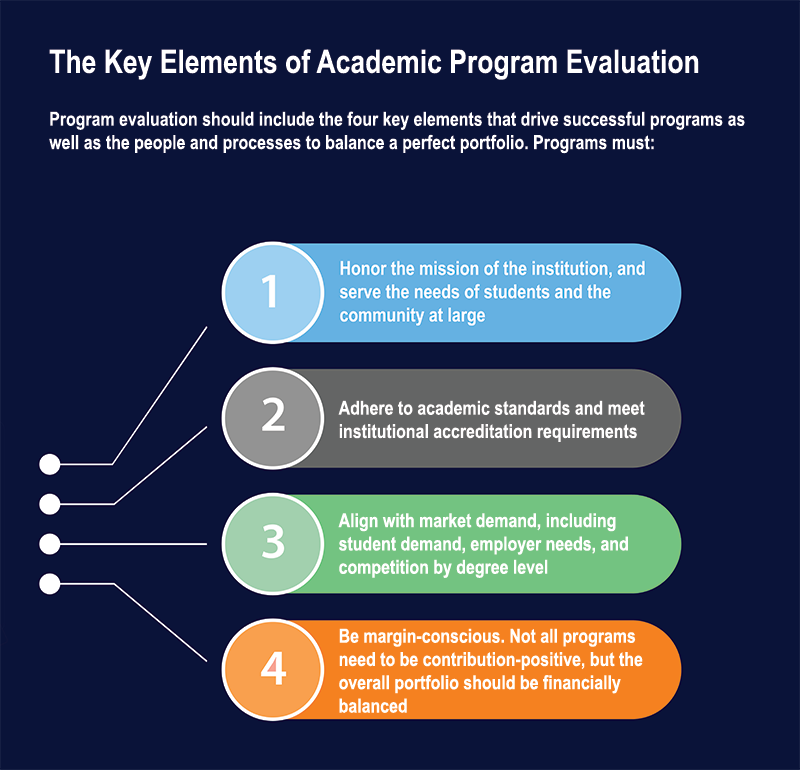An academic program evaluation process is data-informed, transparent, collaborative, and comprehensive when done correctly.It combines data with institutional judgment. Participants bring knowledge of their domain and the institutional mission. Establishing this process at your college or university reveals current and potential new programs that merit investment to increase enrollment and revenue and serve diverse demographic groups. This process also reduces internal obstacles to implementation, speeds up time-to-market, and optimizes ROI by focusing investment on high-potential opportunities.
Important Points to Know Before Getting Started
A successful program evaluation process is multi-faceted and involves stakeholders across the institution:
- Top-down or “closed-door” decision-making can impede the development of successful programs.
- Comprehensive data is crucial and should include academics, markets, and program margins.
- Good program decisions take more than numbers. Success comes from the institutional knowledge and experiences each team member brings to the table.
- Ongoing, systematic reviews will strengthen your academic program portfolio and more likely to sustain vitality during downturns or unexpected crises.
- All programs have life cycles. Even “tried and true” general education programs need course updates to keep them healthy.
The Key Elements of Academic Program Evaluation

Program evaluation should include the four key elements that drive successful programs as well as the people and processes to balance a successful program portfolio. Programs must:
- Honor the mission of the institution, and serve the needs of students and the community at large
- Adhere to academic standards and meet institutional accreditation requirements
- Align with market demand, including student demand, employer needs, and competition by degree level
- Be margin-conscious – not all programs need to be contribution-positive, but the overall portfolio needs to be financially balanced
Wrapped around the key elements of academic programs are the people and processes that drive successful program evaluation:
- People: Include academic and institutional leaders in decision-making.
- Process: Bring the people together in workshops to review all current and potential new programs. Facilitate the discussion and reach an agreement on program decisions.
Having a strong analytical foundation and a clear, inclusive process for program evaluation leads to better decisions, strengthens relationships across the campus, and is consistent with the principles of shared governance.




